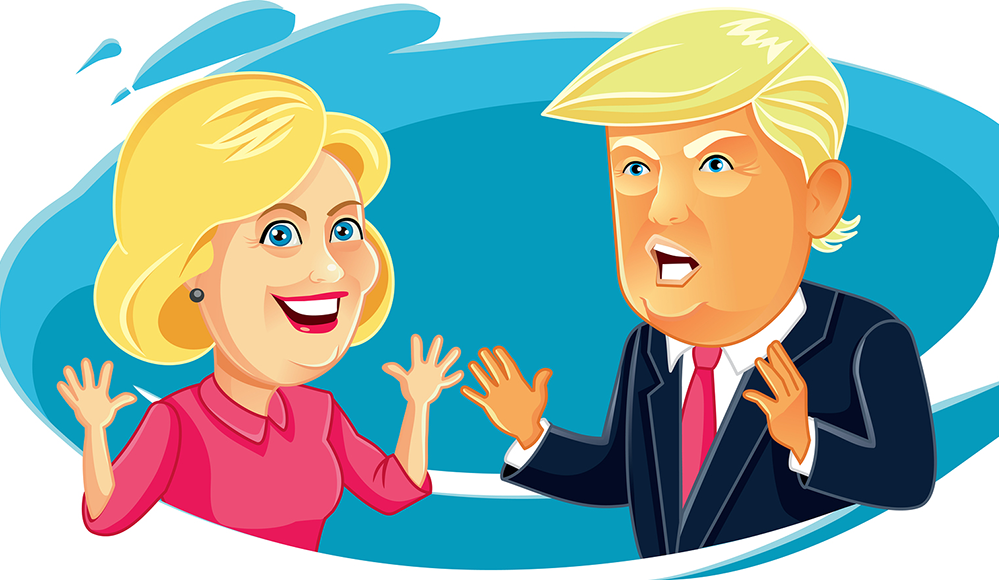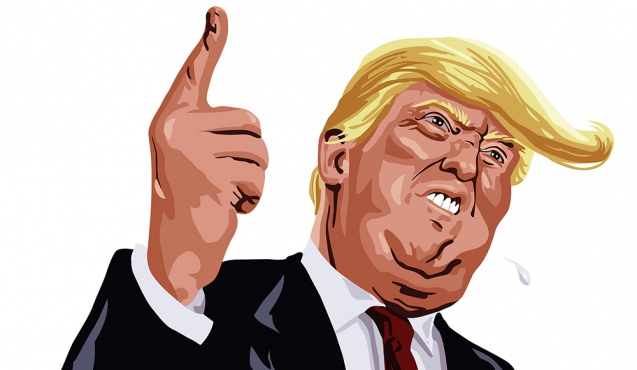Job Search Advice Our Presidential Candidates Should Follow

As Election Day approaches and the fight for the most coveted job in American politics ramps up, both of our presidential candidates might want to review some of the following interview tips.
After all, they are interviewing for a job (in a way) – and unfortunately, they’re making some of the most common interview mistakes!
1. Be Honest, But Don’t Be Horrifying
It’s great to say what you really think. Offering a unique perspective shows you’re capable of original thought and innovation.
But you should be wary of letting it all hang out. Being different is never a bad thing, but being seen as a loose cannon isn’t the best way to win allies and influence people. While it may seem to work for presidential candidates with combovers who have enjoyed second careers as reality TV stars, it’s not a great idea for the rest of us.
2. Don’t Be Too Closed Off
An interview can be uncomfortable and make you feel like you’re under a microscope. As a result, you may unknowingly project your internal discomfort, leaving the interviewer wondering who you really are and what you’re really all about. (Ahem … Hillary.) You may have the best intentions, but if they aren’t conveyed explicitly, you can forget about being hired (or becoming president).
3. Admit That You’ve Made Mistakes – Then Show That You’ve Learned From Them
Without a doubt, this is advice all politicians should heed. They’re only human. Mistakes are a part of life – and they can be great pathways for personal and professional development. The ability to admit your mistakes is a trait employers look for – and so should the American public.
If you’re ever asked for an example of a mistake you’ve made, you don’t need to go into too much detail, but you must be sure to take responsibility. Share what you learned from the mistake and be sure to mention that you’ll never let it happen again. It could look something like this: “I unfortunately made a bad decision for the country for my own personal convenience. Using my personal email for official U.S. business was wrong. I own that, and I have learned from my mistake. As a result, I’m going to pause before making such decisions in the future to consider who is actually benefitting from the action and make sure the answer is always the people of the United States.”

During an interview, you may be asked questions that challenge your skill set, judgment, and overall ability to perform the job. You may even find some line of questioning irrelevant or sense the interviewer doesn’t like you.
Whatever happens, remember that you will be judged by your actions and the way you handle yourself in a tough situation. Keep your composure and be respectful of the interviewer. You always have the right to decline to answer a specific question if you feel it is out of line. Apply this rule whether you’re being interviewed by a hiring manager or a journalist. In the end, they usually have the upper hand in the situation. #MegynKellyRules
5. Avoid Trashing Other Candidates
Again, one could say that all politicians need to pay attention to this particular tip. When presidential candidates trash their competition, they look ugly for doing so. If you try to talk in superlatives about why you’re the candidate that should be hired over the others, you will, too.
So, what should you do when asked why you should be hired over other candidates? Acknowledge that you don’t know your competition and therefore aren’t in a position to say you’re the best. Speak to your own accomplishments and personal attributes that will make you a good fit for the role, rather than trashing your competitors’.
6. Keep the Main Goal in Focus: to Serve the Greater Good
Job seekers, just like presidential candidates, have personal agendas. In fact, they both have special interest groups to appease, whether that’s an organization, a family, or their own ego.
However, when applying for a job, you must remember that the most important agenda to push is the company’s. Demonstrate with specific examples how you can use your skills to help the organization move forward. It may be a challenge to blend your enthusiasm for your professional goals with how you can ultimately help the organization progress, but it’s one you need to take on.
Politicians may be able to sing a different tune once they’re in office, but for better or worse, they have a solid four years of job security ahead of them.
A version of this post originally appeared on Atrium Staffing’s blog.
Michele Mavi is Atrium Staffing ‘s resident career expert.

